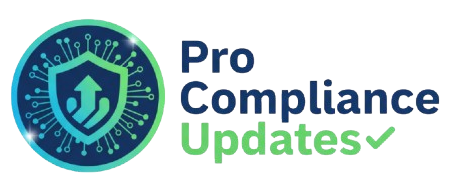Join us in this webinar to familiarize yourself with pregnancy and nursing-related rights and responsibilities of employers and employees. While pregnancy and nursing are not considered disabilities, many pregnancy-related conditions are considered disabilities. The Pregnancy Discrimination Act requires employers to make modifications or accommodations to a pregnant and/or nursing worker’s job in a manner similar to those provided to a disabled employee. This could include adjusting job-related duties, providing additional breaks, or implementing lifting limitations and other safety procedures. Under the Patient Protection and Affordable Care Act section of the Fair Labor Standards Act (FLSA), covered employers are required to accommodate employees who are nursing.
WHY SHOULD YOU ATTEND?
Recent surveys indicate women are working much later into their pregnancies than before. As an employer, it is important to recognize that federal law mandates that you accommodate pregnant workers in accordance with the Pregnancy Discrimination Act (PDA) and the Americans with Disabilities Act (ADA).
In 2017, a handful of states passed legislation designed to protect pregnant workers on the job. The legislation was designed to guarantee that pregnant women received the same level of protection provided to other individuals by the Americans with Disabilities Act. Those protections include reasonable accommodations for pregnant and nursing workers. Employers need to take note of how they and the employee will come to terms with accommodations and know if there are any accommodations for which the employer cannot claim undue hardship.
AREA COVERED
- Is pregnancy considered a disability under the ADA?
- Nursing accommodations - Federal and State Laws
- Post-partum conditions may be "pregnancy-related"
- When employers may require physician documentation?
- Common mistakes to avoid in the accommodation process
- Accommodations for which the employer cannot claim undue hardship
LEARNING OBJECTIVES
- Best practices for accommodating pregnant and post-partum employees
- Title VII of the Civil Rights Act of 1964
- Pregnancy Discrimination Act of 1978 (PDA)
- Family & Medical Leave Act (FMLA)
- The Pregnant Workers Fairness Act
- Understanding the current legal landscape
WHO WILL BENEFIT?
- HR generalists and staff
- Benefit analysts
- Department managers and supervisors
- Small business owners and operators
Recent surveys indicate women are working much later into their pregnancies than before. As an employer, it is important to recognize that federal law mandates that you accommodate pregnant workers in accordance with the Pregnancy Discrimination Act (PDA) and the Americans with Disabilities Act (ADA).
In 2017, a handful of states passed legislation designed to protect pregnant workers on the job. The legislation was designed to guarantee that pregnant women received the same level of protection provided to other individuals by the Americans with Disabilities Act. Those protections include reasonable accommodations for pregnant and nursing workers. Employers need to take note of how they and the employee will come to terms with accommodations and know if there are any accommodations for which the employer cannot claim undue hardship.
- Is pregnancy considered a disability under the ADA?
- Nursing accommodations - Federal and State Laws
- Post-partum conditions may be "pregnancy-related"
- When employers may require physician documentation?
- Common mistakes to avoid in the accommodation process
- Accommodations for which the employer cannot claim undue hardship
- Best practices for accommodating pregnant and post-partum employees
- Title VII of the Civil Rights Act of 1964
- Pregnancy Discrimination Act of 1978 (PDA)
- Family & Medical Leave Act (FMLA)
- The Pregnant Workers Fairness Act
- Understanding the current legal landscape
- HR generalists and staff
- Benefit analysts
- Department managers and supervisors
- Small business owners and operators
Speaker Profile
 Diane L. Dee
Diane L. Dee
Diane L. Dee, President and Founder of Advantage HR Consulting, LLC is a senior Human Resources professional with over 25 years of experience in the HR arena. Diane’s background includes experience in HR consulting, training, and administration in corporate, government, consulting, and pro bono environments.Diane founded Advantage HR Consulting in early 2016. Under Diane’s leadership, Advantage HR Consulting provides comprehensive, cost-effective Human Resources solutions for small to mid-sized public and private firms in the greater Chicagoland area. Diane also develops and conducts webinars on a wide variety of HR compliance and administrative topics for various training firms across the country. …
Upcoming Webinars

Leadership: Strategic Planning and Decision Making

Writing Techniques for Auditors and Risk Management Profess…

Language is Code - Intro to AI - Generative AI - ChatGPT an…

Gossip-Free: Leadership Techniques to Quell Office Chatter

Do's and Don'ts of Giving Effective Feedback for Performanc…

Women’s Hostility to Women at Work: Myth or Reality

4-Hour Virtual Seminar on Audit Proofing your Payroll Opera…

Do's and Don'ts of Documenting Employee Behaviour, Performa…


Retention Starts Here: Stop Losing Your Critical Talent and…


Practice Safe Stress ™: Preventing Burnout While Building R…

Impact Assessments For Supplier Change Notices

Cleanroom, Microbiology and Sterility Assurance Practices f…




Thriving in a Hybrid Workplace: Keys to Leadership and Team…

2-Hour Virtual Seminar on DeepSeek vs ChatGPT AI for CPAs a…

Understanding EBITDA – Definition, Formula & Calculation

FDA Regulation of Artificial Intelligence/ Machine Learning

Construction Lending And Real Credit Administration: Evalua…

Sunshine Act Reporting - Clarification for Clinical Research

How the OBBB Act will Impact Immigration Enforcement! Preve…


2-Hour Virtual Seminar on Outlook - Timesaving Tips and Tri…


Leadership Upskilling: Don’t Just Manage; Lead with Influen…

H-1B Visa Updates and Employer Strategies for 2026

Aligning Your HR Strategy with Your Business Strategy: A Ro…

HIPAA 2025 – Major Changes, Latest Rulings & Guidance

AI for Excel Professionals: Enhancing Productivity with Cha…

Dealing With Difficult People: At Work & In Life

Understanding Accounting for non - Accounting professionals



Excel Power Skills: Master Functions, Formulas, and Macros …
